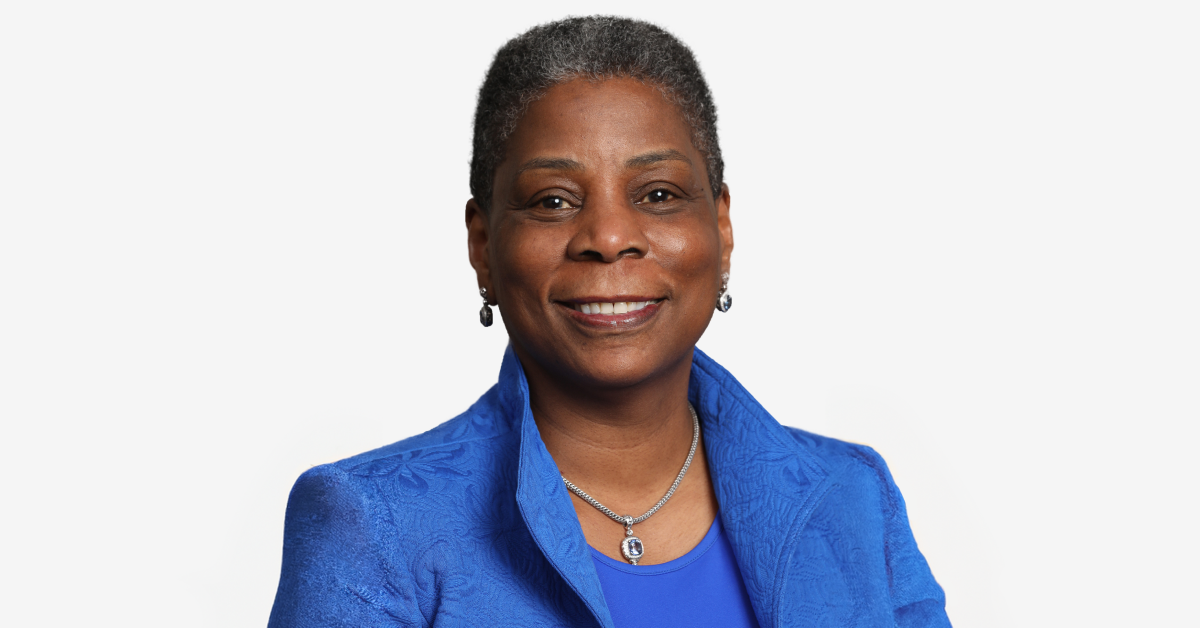Ursula Burns isn't interested in fitting in. As a child growing up in a single-parent household on Manhattan's Lower East Side, Burns says her Panamanian mother would tell her and her siblings ''The world doesn't happen to you. You have to happen to the world, or else you're going to get run over.''
Burns has maintained that philosophy throughout her life and career, using the lessons from her humble upbringing to go from intern at the Xerox Corporation in 1980 to CEO in 2009 — the first Black woman to hold the position at a Fortune 500 company. Stepping into her role following Anne Mulcahy's departure, Burns, who also became Chairman of the company in 2010, was also the first woman to succeed another woman at a Fortune 500 firm. During her more than 30-year career at Xerox, Burns not only helped to save the company from bankruptcy, but she also led Xerox in its $6 billion acquisition of Affiliated Computer Services. Today, she's a board member for major players including ExxonMobile, Endeavor, and Uber, where she's a tireless advocate for a future where the world's diversity is accurately reflected by its leadership.
Burns sat down with Chief Member Janeen Uzzell, CEO of the National Society of Black Engineers, to discuss the responsibility all leaders have to leave the door open for others once they make it into the room.
On Why Being Called Exceptional Can Actually Be an Insult
''From the earliest parts of my career when I was doing things that were not typical for Black women to be doing, it was considered exceptional. I would hear this all along throughout my career, and I was always a little uncomfortable. I finally realized why when I got invited to join an organization called the Business Roundtable. We were in a meeting and people said to me, 'Oh my goodness, you are so exceptional, we're so happy you're here,' and that's when the loop closed. I realized what was being said. I was the only one in the room who looked like me, and the only way that the people in the room could accept me — someone who was so different from what they had accepted before — was to say that I was exceptional. That would allow them to have only me in the room with them. I really started to think about this compliment more as an insult. Not to me, specifically, but to people who are just like me, women, Black women, people of color, people who are not there.''
On Being Totally Comfortable Being Totally Different
''You have to be brave and you have to be bold. People said to me, 'Ursula, you've never really seemed to fit in,' And I said, 'Yeah, that's probably right.' I think that we can't fit in until 'in' includes more of us. It's impossible for me to go into a room and fit in when I'm the only person who looks like me, has a background like mine, et cetera. Now I'm totally comfortable being totally different, and speaking my mind, and making sure that I am informed enough to have a fulsome conversation about issues, but not necessarily lining up when people want you to line up.''
On Motherhood as a CEO
''Find a partner. It doesn't have to be your husband or your wife. If the partner is a village, find a village, you need support. Your kids need another point of view, another voice in the house, particularly if you're as busy as I was. My husband was phenomenal. I had a whole community helping me raise my two children, including my husband. This blessed burden isn't something you have to carry alone. We have to change this stereotype into a new reality that families are raised by groups of people, not by an individual and definitely not by the mother alone.''
On Managing Mom Guilt
''My kids never thought that my physical presence was a measure of whether or not I loved them or didn't love them. I was very comfortable, very comfortable. For example, my daughter played volleyball. She was really not a great volleyball player. She's five-foot-four; she was not that interested in it, but she played it because her brother played it. There was this hope that all of the parents would go to all these volleyball games that were relatively useless. I mean, they were not really that great at it. [Other parents would] go and they'd say, 'Well, how could you not attend?' I said, 'Because I wanted to have coffee with my girlfriends.' I was there to pick her up. I made sure somebody got her home, but I wasn't going to sit there and watch a very uninteresting volleyball game every free moment I had when I had other things I could be doing. I had a different reality when I was growing up, so I imparted that reality very differently on my kids.''
On Why She Doesn't Believe in Equitability
''I actually am not really a big believer in equitability today. I think that we have to be affirmative, and almost by definition that's not equitable. We women, people of color, less-able people, you name it, are starting at such a deficit in position, in power, in influence, financially. To make it better, we're going to have to do something that I consider affirmative, because the structure of society, the rules, everything about it, has been built for white men. They designed the playing field. They literally pick the referees, trained the referees, and then they say, 'Oh, now you can come in. You can play the game, but we already have it set up for us. If you can make it, great.' They say, 'Oh, Ursula made it, so she's exceptional.' That's BS. I say that the elevator is sent down with a particular lift. I have a very strong responsibility and I believe all [Chief Members] do, too, to actually put a specific focus and a particular rise up on women and people of color.''
On Terminal Niceness and Coming Into Your Own
''I was preceded in being CEO by one of the highest EQ people I've ever met in my life. Her name was Anne Mulcahy. She's an amazing person. She gets people quickly and she's very good at managing differences, and she's just kind. When it was clear that I was going to become CEO, she said to me, 'Ursula, remember, we the company does not need Anne Mulcahy. They need an Ursula Burns.' It was one of the most liberating statements that I've ever gotten in my life, because Anne was very, very nice and, not in a negative way, but I am not naturally as nice. I just don't beat around the bush… I am pretty natural and caring, but fairly blunt.''
On the Responsibility Leaders Have to Speak Up
''When I was starting out, I was the only one, so all I had to do was raise my hand and people would know who I was. A lot of you [Chief Members] are at that point, that's an advantage that you have to use on behalf of every other person that looks like you. You have to say, 'Okay, I have your attention now.' I sit in the boardroom, and I'm sick and tired of being the person who talks about diversity. I'm sick and tired of it. But, when you look at the slate of candidates to become the next CEO, or CFO, or C-something and there are no people of color, no women — if you're silent, you've lost a big shot. Even if they expect you to say it, you have to say it.''
On How She Ensures Corporate Accountability Around DEI
When it comes to saying you care about DEI, she says, ''show me the numbers and then show them to me a year from now. I understand if you started badly, but if I talk to you a year later and you still have nobody, I know that you're not playing the game at all — you're not even engaged in the game.
''[Board members will] say, 'Well, it costs a lot.' I say, 'Then pay them a lot. They'll say, 'They're hard to find.' I say, 'Then go find them.' We have profit problems all the time in our companies and we don't say, 'It's really hard to make money, don't worry about it. You don't have to do it this quarter.' We say, 'No, go get it.' It's the same thing with talent.''
On How to Build the Future
''White men and us, we are all victims of the same raising, of the same reality, of the same history. What we're trying to do is not repeat it. We're trying to build a whole new future. First, make sure that people understand that some of the things that people think are normal are goddamn barriers. We have to actually make sure people understand the privilege that they are living in. By the way, I have men who I love, but they don't get it, just how much the world has been designed for them.''
Have you listened to the Chief podcast? Tune into "The New Rules of Business" as Chief Co-Founders Carolyn Childers and Lindsay Kaplan unpack today's often nuanced, dichotomous leadership challenges to change how executives do business. Follow wherever you get your podcasts.

